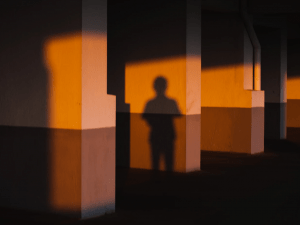 Today, both in public and private forums, bias is an unfortunate reality with which most of us are all too familiar. It may be the biases of others, who seem so easily to marginalize and discriminate, or our own prejudices that lead us to make easy judgments. Whether conscious or not, bias has often plagued humankind.
Today, both in public and private forums, bias is an unfortunate reality with which most of us are all too familiar. It may be the biases of others, who seem so easily to marginalize and discriminate, or our own prejudices that lead us to make easy judgments. Whether conscious or not, bias has often plagued humankind.
This was no different in seventeenth-century France. In fact, the era of Saint Vincent and Saint Louise was cruelly stained by explicit, state-sanctioned bias against those who were socio-economically poor. This was epitomized by the “War of the Great Confinement” which began in 1656 with a royal prohibition against all manner of public begging by the destitute poor.1 All forms of private almsgiving were also outlawed. Indeed, over the course of several years, more than five thousand poverty-stricken people were deprived of their freedom and forcibly contained in a series of institutions known as the General Hospital of Paris. Such actions were an explicit manifestation of sociocultural bias, enshrined in state policy and enforced by police and the judiciary.
Amidst such persecutory and punitive acts towards the poor, Vincent and Louise committed themselves to those whom French society had most abandoned and disenfranchised. Their ministry stood as humble testimony that another world was possible, a world in which the poor were honored and respected, not criminalized. In coming to know and love those whom society had shunned, Vincent and Louise were invited to stand in solidarity with those on the farthest margins. Their praxis testified to the inherent God-given dignity of all, but most especially to those who were poor. In seventeenth-century France, for some, this was a radical belief.
We may sometimes think that the lives of those who have gone before us are encased in history, with little to say about our current reality. However, I choose to believe this is not so. If you are reading this, may I invite you to pause for a moment and consider the following?
Are there still strong societal biases today that marginalize or alienate some individuals or groups of people? How might your values and beliefs compel you to act to expose and work against these biases in order to affirm the dignity of all? Are there ways in which, like Vincent and Louise before, you are being called today to make real with your hands what your heart longs to see?
1 See Edward R. Udovic, C.M., “‘Caritas Christi Urget Nos:’ The Urgent Challenges of Charity in Seventeenth Century France,” Vincentian Heritage 12:2 (1991), 86, at: https://via.library.depaul.edu/vhj/vol12/iss2/1/
Reflection by: Siobhan O’Donoghue, Director, Faculty and Staff Engagement, Division of Mission and Ministry

